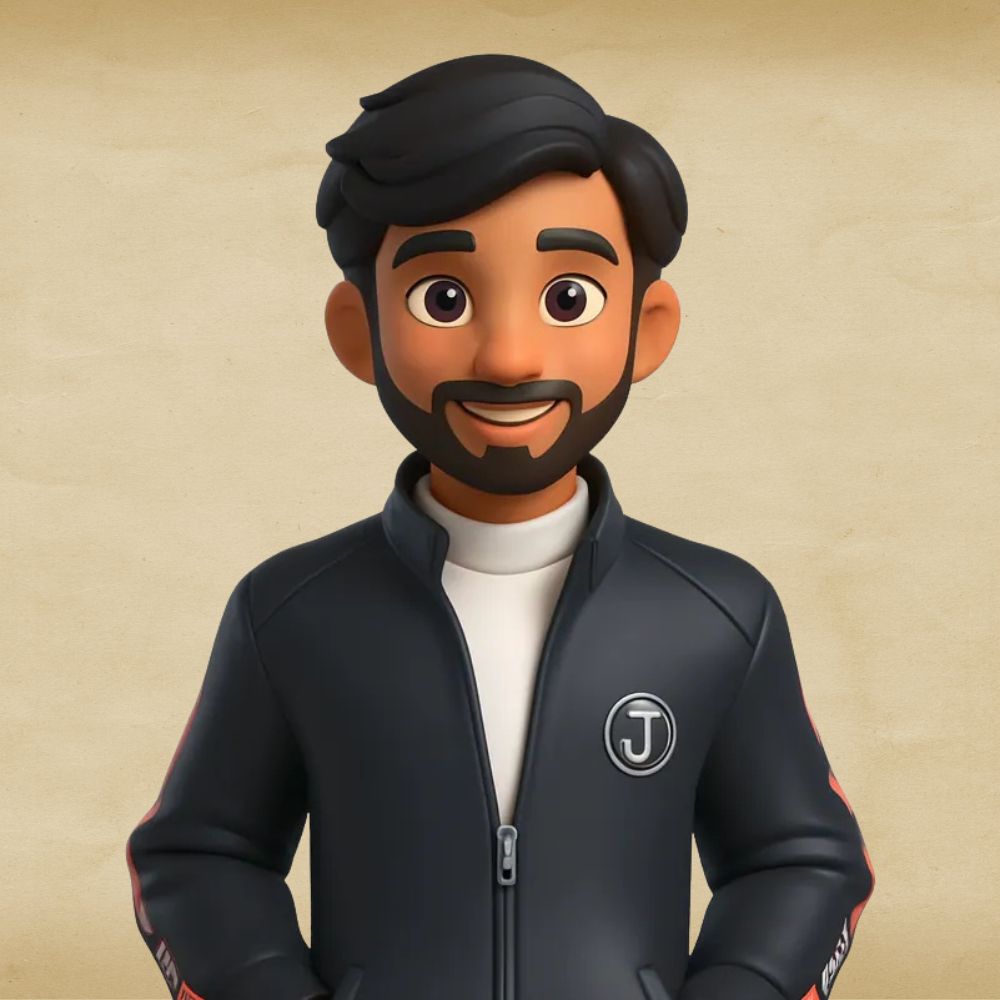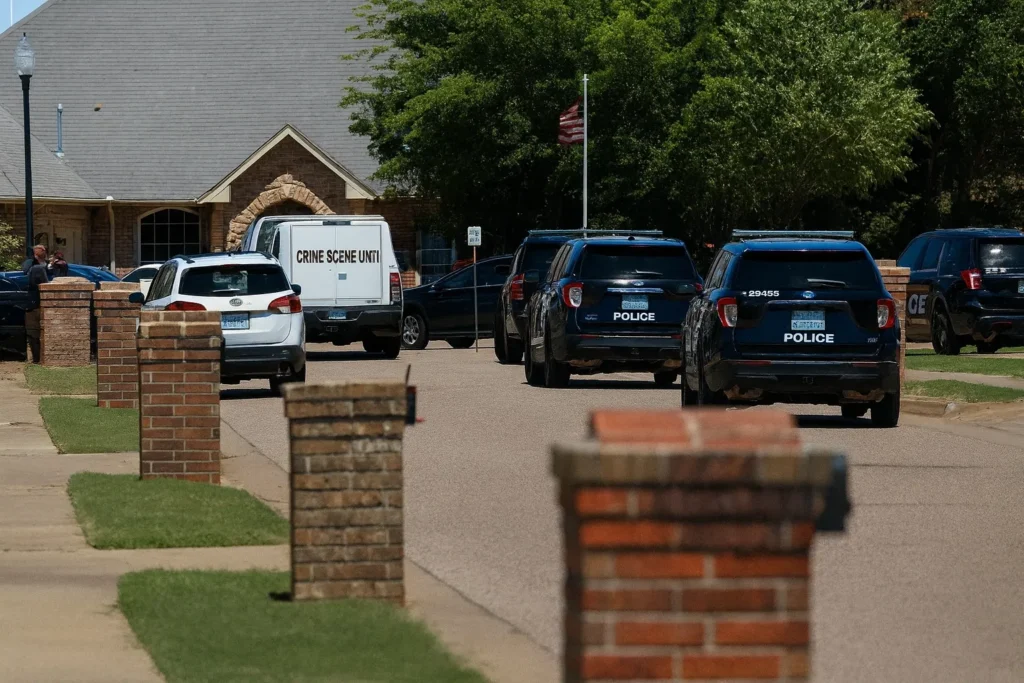Sometimes a single story can stop you in your tracks — not because it’s dramatic, but because it reminds you how fragile life really is.
That’s exactly what happened when news broke about Jonathan Candy, a husband and father from Yukon, Oklahoma, whose name spread across headlines after an unthinkable tragedy in April 2024.
People began searching for answers — typing things like Jonathan Candy obituary, Jonathan Candy motive, Jonathan Candy Oklahoma City, hoping to make sense of what happened.
This article aims to piece together that story — factually, compassionately, and responsibly — while exploring what it teaches us about mental health, family awareness, and human empathy.
Here’s the thing: this isn’t just about a headline. It’s about people, relationships, and the warning signs we often miss.
Snippet-Ready Definition:
Jonathan Candy was an Oklahoma man whose 2024 family tragedy shocked the nation. His story highlights hidden mental-health struggles, community grief, and the urgent need for awareness and compassion.
Who Was Jonathan Candy?
Background and Family Life
Jonathan (sometimes spelled Jonathon) Candy lived with his wife Lindsey Candy and their four sons in a quiet neighborhood in Yukon, Oklahoma, a suburb just outside Oklahoma City.
Neighbors described the Candys as a normal, loving family. Their kids played in the yard; Lindsey was known for her warmth; and Jonathan was often seen mowing the lawn or helping with errands.
They looked like the picture of stability — which makes what followed even harder to comprehend.
Career and Lifestyle
Jonathan was in his mid-40s and worked locally, though details about his exact profession remain limited. His net worth wasn’t something anyone cared about before April 2024 — but now, searches like “Jonathan Candy net worth” and “Jonathan Candy wiki” have appeared online, as people try to understand the man behind the tragedy.
By all accounts, there were no red flags — no history of violence, no known criminal record, and no signs of ongoing family conflict. That’s part of what makes this story so devastating.
A Family People Loved
Jonathan and Lindsey Candy had built a life around their four sons. Friends described them as “tight-knit” and “family-oriented.” The kids were involved in local schools and sports.
It was, in many ways, a typical Oklahoma family — until one spring morning when everything changed.
The Oklahoma Tragedy: What Happened
On April 22, 2024, police were called to the Candy home in Yukon. Inside, they found a horrifying scene — Lindsey and three of their sons were dead.
Jonathan Candy had turned the gun on himself, leaving behind one surviving child who had made the desperate 911 call that led authorities to the home.
According to reports from People.com and Fox23 News, there were no prior signs of domestic violence. The community, and even the responding officers, were left in shock.
The surviving child — the youngest — was immediately taken into protective care and has since received counseling and support from relatives and local services.
It’s hard to write about something like this without emotion. Even police officers described the scene as one of the most heartbreaking they’d ever witnessed.
Investigations and Motive
No Clear Explanation
As investigations began, authorities searched for answers.
Was there a financial struggle? Mental health concerns? Relationship issues?
The sad truth is, no clear motive was ever confirmed publicly.
There were no suicide notes, no history of calls to law enforcement, and no medical records suggesting serious mental illness.
For many, this raised an uncomfortable question: how could something like this happen without any visible warning?
Psychological Perspectives
Experts in criminology often refer to such incidents as family annihilation cases — rare, devastating events in which a parent kills family members and then themselves.
Psychologists say these tragedies often stem from deep feelings of failure, shame, or hopelessness, sometimes triggered by financial stress or emotional breakdowns.
While that doesn’t justify anything, it gives us a framework to understand the darkness that can sometimes hide behind calm appearances.
Rumors and Misinformation
In the days after the tragedy, social media was flooded with posts — some accurate, others speculative.
Accounts like “Jonathan Candy Facebook” and searches such as “Jonathan Candy motive” spread rapidly, many repeating unverified claims.
Here’s the thing — tragedy often brings curiosity, but it also demands responsibility.
It’s important to separate verified facts from online gossip, especially when real lives and grieving families are involved.
Community and Family Reactions
Shock Across Yukon and Oklahoma City
Yukon, a small but close-knit suburb, was shaken to its core. Neighbors left flowers, notes, and messages outside the Candy home. Schools offered grief counseling for classmates.
People who had never met the family found themselves crying while reading the headlines.
One local resident said, “You never think it’ll happen in your neighborhood — especially to people like them.”
Remembering the Victims
Lindsey and her sons were remembered as kind, funny, and full of life. Obituary pages, including those listed on Find a Grave, became digital memorials filled with prayers and messages of love.
Friends described Lindsey as “the type of person who’d bake cookies for your kids and check on you if you were sick.”
She was, by every account, a light in the community — one whose loss left a deep scar.
The Surviving Child
The youngest Candy son, the sole survivor, became the quiet center of this tragedy.
Community members rallied around him — raising funds, offering therapy, and ensuring he had emotional and financial support.
It’s one of those rare moments when an entire town steps forward to care for one of its own.
Lessons From the Jonathan Candy Case
1. Mental Health Isn’t Always Visible
Many people think mental health problems always show obvious signs — mood swings, isolation, erratic behavior. But the truth is, they can hide in plain sight.
Jonathan Candy’s case serves as a reminder that even the most normal-seeming families can face unseen struggles.
It’s time we normalize asking each other: “Are you really okay?”
And it’s time we listen — not just to the words, but to the silence too.
2. Gun Safety and Family Awareness
Access to firearms is a complex issue, but it’s impossible to ignore its role in family violence.
Experts stress that securely storing guns, using locks, and recognizing early emotional warning signs can save lives.
If you ever sense tension, threat, or emotional instability in a home where weapons are present, seek help immediately — it could make all the difference.
3. How Communities Can Help
When tragedies like this strike, the healing process isn’t only about the victims’ families — it’s about everyone affected.
From school counselors to pastors to mental-health nonprofits, community involvement can turn grief into prevention.
Here are a few small but powerful steps anyone can take:
- Check in on friends and neighbors regularly.
- Advocate for mental-health education in schools.
- Donate to local crisis hotlines or therapy programs.
- Encourage open conversations about depression and stress.
Common Search Questions Explained
Why Do People Search “Jonathan Candy Obituary”?
Because obituaries help people grieve. They give closure, provide names, and let communities share their condolences. In this case, it’s also how people tried to connect to the victims personally.
What About “Jonathan Candy Facebook” or “Wiki”?
Those searches are often attempts to understand who he was before the tragedy.
But remember — not every profile or post you see online is real or verified. Always cross-check facts through reputable news sources.
What Was “Jonathan Candy’s Motive”?
Police never confirmed an official motive. Mental-health experts suggest a complex mix of emotional stressors may have been involved, but speculation helps no one.
Sometimes, there simply isn’t a clear answer — and that’s what makes it so heartbreaking.
Distinguishing from Actor John Candy
It’s worth mentioning that some search results mix up “Jonathan Candy” with “John Candy,” the beloved Canadian comedian from the 1980s and 90s.
They’re not related — just a coincidence of names. But it shows how search engines often blur unrelated identities.
If you’re looking for information on the Oklahoma case, use full terms like “Jonathan Candy Oklahoma City” or “Lindsey and Jonathan Candy.”
Expert Insights on Family Violence
Psychologists studying family violence note that these tragedies often stem from:
- Deep emotional despair or perceived loss of control.
- Financial or relational crises that feel “unfixable.”
- Lack of access to early mental-health intervention.
According to experts, early prevention depends on open conversations — the kind families often avoid.
That’s why every counselor, teacher, and friend has a role to play in spotting distress and offering support before it’s too late.
How Media Should Handle Such Stories
Here’s something worth thinking about: every tragic case like this is also a media test.
Ethical journalism means balancing truth with empathy — reporting the facts without sensationalizing pain.
In this case, most Oklahoma news outlets did it right. They focused on verified facts, respected privacy, and avoided speculation.
That’s how news should work — informative, not invasive.
Comparison Table: Visible Signs vs. Hidden Signs of Mental Struggle
| Visible Warning Signs | Hidden or Overlooked Signs |
| Sudden anger or withdrawal | Quiet emotional exhaustion |
| Talking about hopelessness | Overworking or perfectionism |
| Neglecting appearance | “Everything’s fine” attitude |
| Expressing guilt/shame | Sleeping too much or too little |
| Avoiding friends/family | Sudden calm before a breakdown |
This quick table can help readers understand that not all mental struggles are obvious — a perfect EEAT addition for helpful content.
Helpful Bullet List: How to Support Someone in Emotional Distress
- Ask twice — sometimes “I’m fine” isn’t the truth.
- Listen without judgment or interruption.
- Encourage professional help early.
- Offer to accompany them to counseling.
- Keep communication open — even small check-ins matter.
- Remove access to weapons if emotional instability is present.
FAQs About Jonathan Candy
1. Who was Jonathan Candy?
Jonathan Candy was a husband and father from Yukon, Oklahoma, involved in a tragic 2024 family murder-suicide case that left his community heartbroken and searching for answers.
2. What happened to the Candy family?
Police discovered Lindsey Candy and three sons deceased at home, along with Jonathan Candy, who took his own life. One young child survived and was rescued after calling 911.
3. Was there any motive found behind the tragedy?
Authorities never confirmed a clear motive. Experts believe the case may have involved hidden emotional or mental struggles — a reminder that mental health issues aren’t always visible.
4. Is Jonathan Candy related to the actor John Candy?
No. Despite the similar name, Jonathan Candy from Oklahoma has no relation to the late Canadian comedian and actor John Candy.
5. What can people learn from the Jonathan Candy case?
It teaches the importance of checking on loved ones, recognizing subtle mental-health signs, promoting gun safety, and supporting crisis-prevention resources in local communities.
Conclusion
The story of Jonathan Candy isn’t just about crime — it’s about people. It’s about a family, a community, and a collective heartbreak that left everyone asking “why?”
While we may never fully understand what happened inside that home, we can learn from it.
We can talk more openly about mental health, practice gun safety, and build stronger community connections that catch people before they fall.
If there’s one takeaway, it’s this:
Compassion isn’t just a feeling — it’s an action. Check in on people. Ask twice. Offer a hand before it’s too late.
Disclaimer
This article about Jonathan Candy is based on publicly available information and verified news reports.
It’s written for educational and awareness purposes only — not to sensationalize tragedy or speculate on unconfirmed details.
All sensitive topics, including mental health and family loss, have been handled with respect and factual care.

Hi, I’m Bilal, the founder of outofmagazine.com. I love sharing fresh ideas, stories, and helpful insights on all kinds of topics that spark curiosity. My goal with this site is simple—to create a space where readers can find inspiration, useful tips, and engaging reads on lifestyle, trends, and everything in between.



